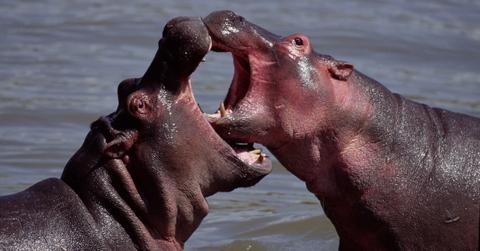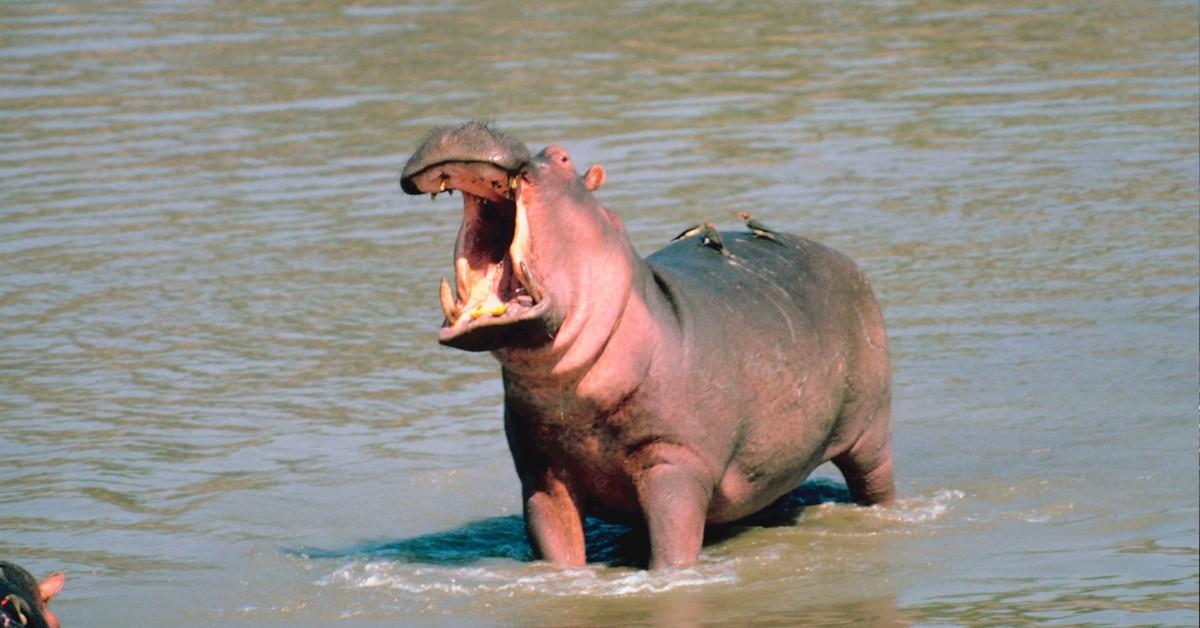Hippos Are Known for Being Aggressive — Are They Actually All That Bad?
You don't want to end up on the bad side of a hippopotamus.
Published July 9 2024, 10:03 a.m. ET

When you think of a hippopotamus, you might be reminded of a little girl begging her parents for a hippopotamus for Christmas. The reality is that these massive creatures have tempers just as big as they are, and they've been known to rush just about anything foolish enough to get within charging distance.
Why are hippos so aggressive? And what happens to the humans who happen to get on their bad side? According to the experts, hippo attacks may be all about being in the wrong place at the wrong time. Keep reading to learn more.

Why are hippos so aggressive?
Hippos are quite territorial animals, so when a human, vehicle, or other animal ends up somewhere the hippo thinks of as "theirs," they are more likely to physically attack. While this can be just as true on land as it is in water — hippos will attack passing boats, according to Outdoors International, sometimes capsizing them — it seems you're most likely to find yourself in danger of an attack when you're near a hippo and their favorite watering hole.
Why do hippos attack humans?
The most likely reason hippos attack humans is because they see them as a threat. This can be especially frightening for humans since Science ABC notes that hippos can reach speeds of up to nearly 19 miles per hour on land and 6 miles per hour in water.
When you take into consideration how much hippos weigh — an adult male can weigh anywhere between 3,500 and 9,920 pounds, according to PBS — any kind of confrontation with a hippo is extremely dangerous.
Not only that, but research conducted by the University of London's Royal Veterinary College (RVC) has found that despite their great size, these animals can also become airborne for up to 0.3 seconds when moving quickly enough!
Professor John Hutchinson, the lead author of the 2024 study published in PeerJ, told Sky News, "We're thrilled to provide the first study purely focused on revealing how hippos walk and run."
Outdoors International says people should avoid interacting with hippos and stay away from the places where they live. If you don't have any choice but to cross paths with a hippo during your travels, the outlet suggests doing so during the day when hippos tend to be more visible and less active. As with all wild animals, avoid trying to feed or interact with them at all costs.
Why do hippos kill their babies?
Sadly, humans are not the only targets of hippo hostility. It's not uncommon for male hippos to try and lower the number of animals in the herd by eliminating the youngest or reducing competition for finding a mate. National Geographic explains that this can put babies, especially males that don't belong to the older hippo, in quite a bit of danger.